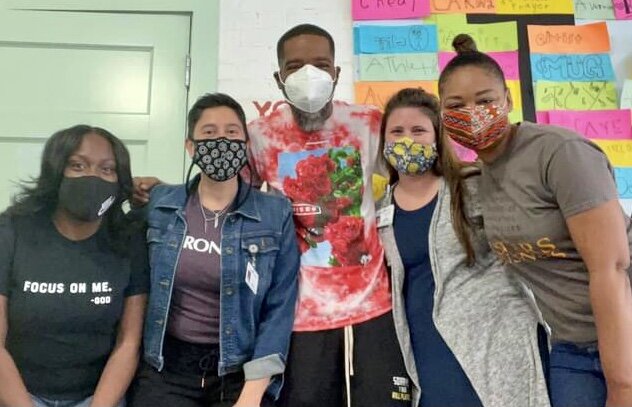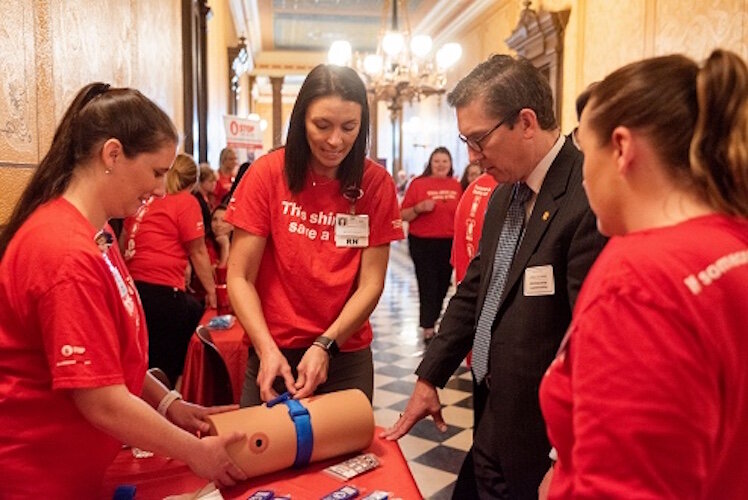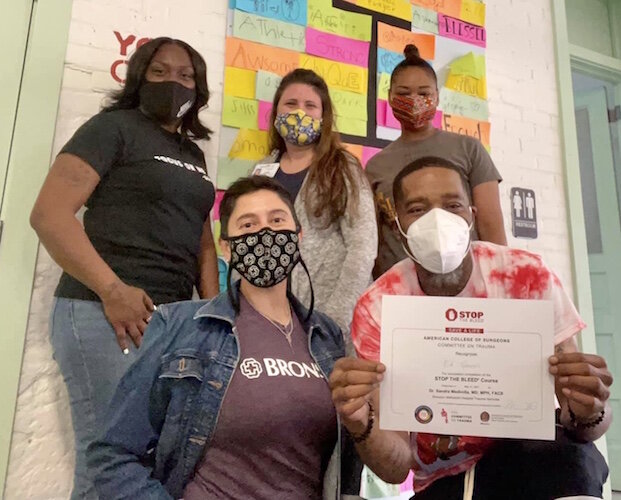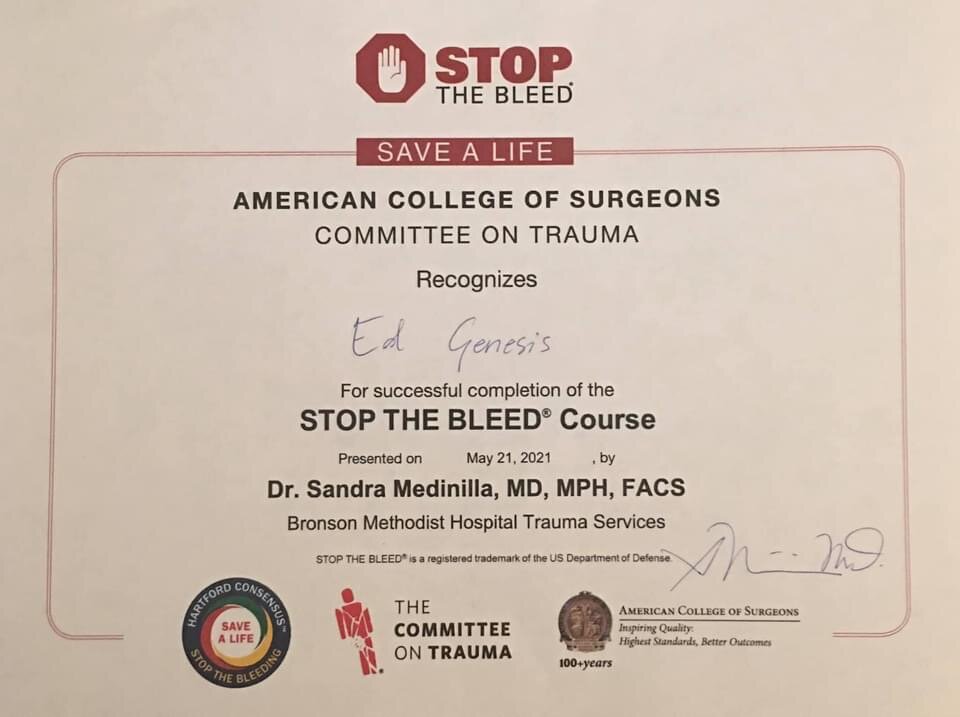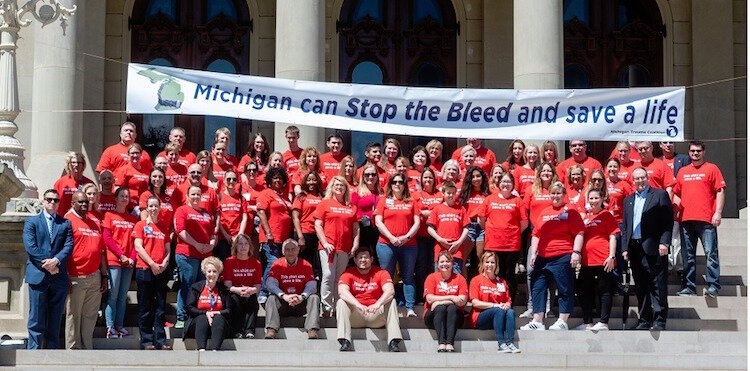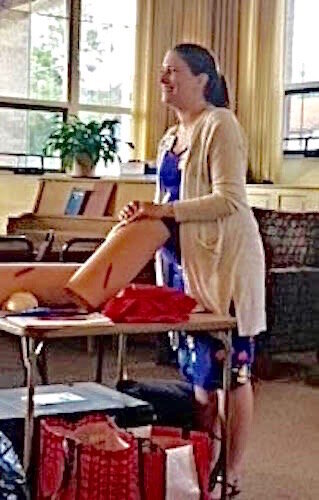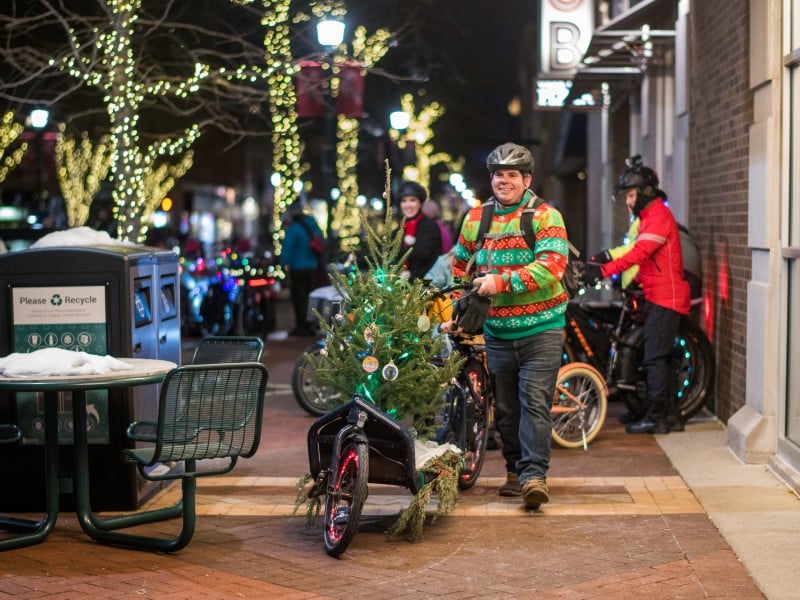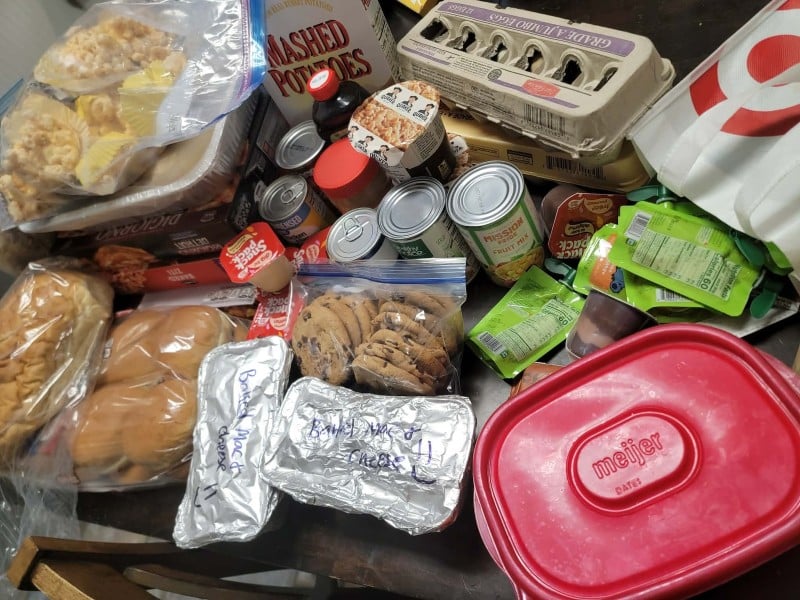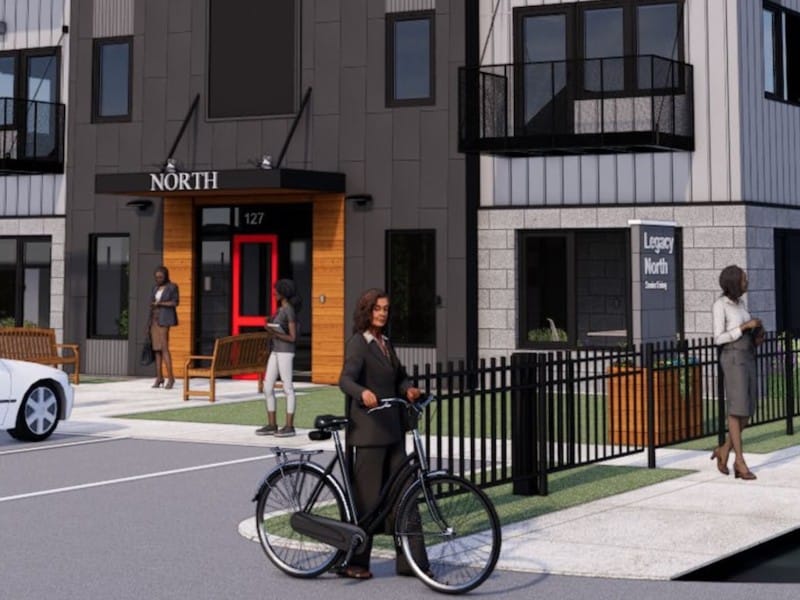Kalamazoo hospital offers a way to help out when a shooting or major injury occurs
You may know how to perform CPR, but do you know how to Stop the Bleed? A training program with the potential of saving lives is being offered nationally and in Kalamazoo by Bronson teaches people how to respond when faced with traumatic injuries.
Editor’s note: This story is part of Southwest Michigan Second Wave’s On the Ground Kalamazoo series.
Wham! It happens. Someone is seriously injured. A bystander dials 911. Emergency services are on the way. But they probably won’t arrive for several long minutes. You’re there. What would you do?
With car crashes, calamities, and gun violence becoming everyday incidents nationwide and in Kalamazoo as well some people are wondering what to do. Others are preparing to help.
“We completed the Stop the Bleed training,” community activist and artist Ed Genesis announced recently online, referring to himself, Patrese Griffin, who is vice mayor of the City of Kalamazoo, and Tami Rey, vice chairperson of the Kalamazoo County Board of Commissioners.
Stop the Bleed is a free, one- to two-hour program that teaches people — with or without any previous knowledge of medicine or emergency care — how to use pressure, tourniquets, and everyday items to help stop the bleeding caused by traumatic injuries, and potentially save lives.
“I see several benefits, one being (that) bystanders don’t just have to stand there anymore,” says Genesis, who was motivated to participate after a discussion about its potential benefits to the Kalamazoo community with Dr. Sandra Medinilla, an emergency care physician and trauma surgeon at Bronson Healthcare.
In the midst of the chaos, screaming, and confusion that accompanies many traumatic injury events, he says, “Sometimes people don’t know what to do. And it (the training) could save a life. It really can save a life if somebody can be that person who can get control of the situation.”
Amanda Wyman says, “Stop the Bleed is one of the programs we do.” The trauma program coordinator for Bronson Healthcare’s facilities in Kalamazoo, Battle Creek, South Haven, and Paw Paw, says they offer the training in high schools including Loy Norrix and Kalamazoo Central in Kalamazoo. The roram is offered at Battle Creek Central High School and another school over by the lakeshore. “We go into the schools and provide that education to health classes and then we also do community education as well,” Wyman says.
But in-person training that has been provided to schools, police officers, gun clubs, churches, community groups, and others, was halted after the COVID-19 pandemic surfaced in March of 2020, says Wyman. And it may be up to two months before those in-person, hands-on sessions are restarted.
After a discussion with Dr. Medinilla, Genesis says he was able to do the training and invited Griffin and Rey to join him. He says having the vice mayor and vice chairperson of the county board train together was an intentional move to try to get those two entities working together. He hopes that gives the training the potential to have a countywide impact in the future.
“As of right now, the American College of Surgeons is still recommending that we withhold on in-person classes at this time,” Wyman says. “We are hoping that within the next couple of months that we can get the program up and running again.”
Remote, online sessions have been done with some schools during the COVID shutdown, she says. And the training provided to Ed Genesis and others in late May was intended to call attention to the benefits of the program as pandemic restrictions are lifted. It was conducted by Wyman and Medinilla, who lived and worked in high gun-violence areas on the East Coast before joining Bronson Healthcare in 2019.
In the context of several shootings in Kalamazoo over the past weekend, Genesis says, “It’s (the training is) needed now and we have community members that are ready to step up and get it. So I’m hoping we get it in less than a couple of months.”
Genesis is a spoken-word artist and rapper who made mistakes in his younger years and was incarcerated. His background gives him a foundation to understand and connect with many young people who may make mistakes that land them in trouble. Working individually and through organizations, he helps connect community residents with nonprofit organizations such as ISAAC (Interfaith Strategy for Advocacy & Action in the Community), TRHT (Truth, Racial Healing & Transformation), and Kalamazoo Group Violence Intervention, and advocate for them in matters involving the Kalamazoo Department of Public Safety and the courts.
Bronson Healthcare has conducted Stop the Bleed training as part of a national campaign led by the American College of Surgeons, and as a community outreach service Bronson Methodist Hospital provides as part of its mission as a Level 1 trauma center.
National bleeding management training for community members started unofficially and without any title after the December 2012 mass shooting at Sandy Hook Elementary School in Connecticut. That incident left 26 young people and staff members dead, some of whom may have been helped if effective bleeding control techniques were used by those around them.
“Upon looking at that shooting that had occurred, they saw that a lot of the injuries were ones that could have had bleeding control and it would have resulted in more positive outcomes for those kids,” Wyman says.
Training programs started in a more official capacity after the federal government and the American College of Surgeons organized the Stop the Bleed program in 2015.
The program includes a presentation portion, a segment that explains the steps that go into stopping victims from bleeding, and a hands-on training segment. Although movies have perpetuated the idea of using a belt as a tourniquet, Wyman says there are better options.
“We really, really focus on the fact that just holding that pressure to the wound is so vital to helping to stop that bleed and helping your body to clot,” she says.
Asked if we’ve reached a point in American life where average citizens need such training, Wyman says, “We really focus in the program that it’s not just for those mass (trauma) incidents. Yes, obviously any time a mass casualty event happens, anyone that has extra medical knowledge at the scene is wonderful. But it’s also just for the everyday home. We have so many people who get injured at home.”
The training may save a limb when it’s not saving a life.
“It’s really just about the everyday purpose of it as well,” she says, mentioning incidents in which people are cutting wood and hurt themselves.
Being certified in Stop the Bleed means you have some knowledge, Wyman says, “So if you were to come across a traumatic bleed you have the knowledge of what to look for and what to do about it.”
She says the training, when it came about, “Was about bystanders. There’s a gap between when EMS might arrive and where someone could potentially bleed out from traumatic bleeding. … It’s those bystanders that we want to train. We want to train people so that way they can start doing some life-saving management before medical personnel is able to arrive.”
Genesis says one of the things he learned in the training, is that it teaches people how to respond to the traumatic situation and to provide useful information to police officers and first responders. Before they arrive, it may mean helping to direct people at the scene.
“You got this person stopping the actual blood,” he offers. “But then you’ve got this person saying, ‘Hey, I need you to direct traffic right here. And I need you to do this.’ So there’s benefits to first saving a life and then also getting control of a chaotic situation.”
Asked if he thinks it’s necessary for the average person to have such training, Genesis recalls a large gathering on Kalamazoo’s Northside a couple of summers ago in which a shooting occurred.
“There were so many people in the street, paramedics could not drive through,” he says. “So they had to get the flat bed out of the back of their truck and run through the crowd.”
It’s not that trained citizens will be able to take over or do the jobs of first responders, he says, but they could help in such incidents.
Genesis is a community organizer and, along with his wife Griffin, is a resident of Kalamazoo’s Northside Neighborhood. Among his efforts is the establishment of a Participatory Defense Initiative in Kalamazoo. It strives to teach family and community residents how to advocate for loved ones and others interacting with the criminal justice system. And he has helped organize five Northside neighborhood block clubs with residents working to support positive changes in their areas. That includes standing against gun violence, Genesis says.
A member of the ISAAC Gun Violence Prevention Task Force, he says, “There’s been an influx of gun violence over the last three years especially. Numbers have doubled, almost tripled. They’re shooting into houses and two young kids were hit with stray bullets last summer.”
He says everyone should know what to do in situations where major injuries occur, “Because it’s not just guns, it’s any injury.” But he says helping to stop the impact of gun violence is why he hopes to see community members and police involved in Stop the Bleed training.
“Everybody right now in Kalamazoo County should, if you have the time, … get the training,” he says. “Be a part of the community. And even if you’re not the one tying the tourniquet, you can be one of the people helping marshal and helping get control of a chaotic and traumatic situation.”
The biggest thing people have said they take from the training is a better understanding of why it is important, Wyman says.
“I think with a lot of traumatic events people don’t think about it until it has happened to them or to someone close to them,” Wyman says. “So I think that’s what the awareness brings people back to – that this CAN happen and it DOES happen. So they have the tools then if they were to come upon a situation like this or have a family member have a situation like this. They now have the tools and the knowledge that they feel empowered to help.”
For people who think gun violence is a Black thing and it’s not affecting other communities, Genesis says they’re wrong.
“This is all our community,” he says. “We all share this community and we cannot deny that gun violence has become a part of this community. There are people fighting to get it out. But in the interim, anybody who can have the time to learn, I would say ‘Yes, learn.’ It could save your life. You could be cutting grass at home (and get injured). So it doesn’t necessarily have to be gun violence. It could be stopping the bleeding.”

